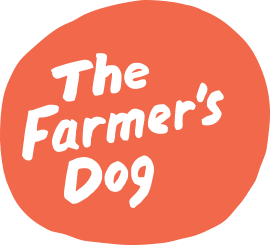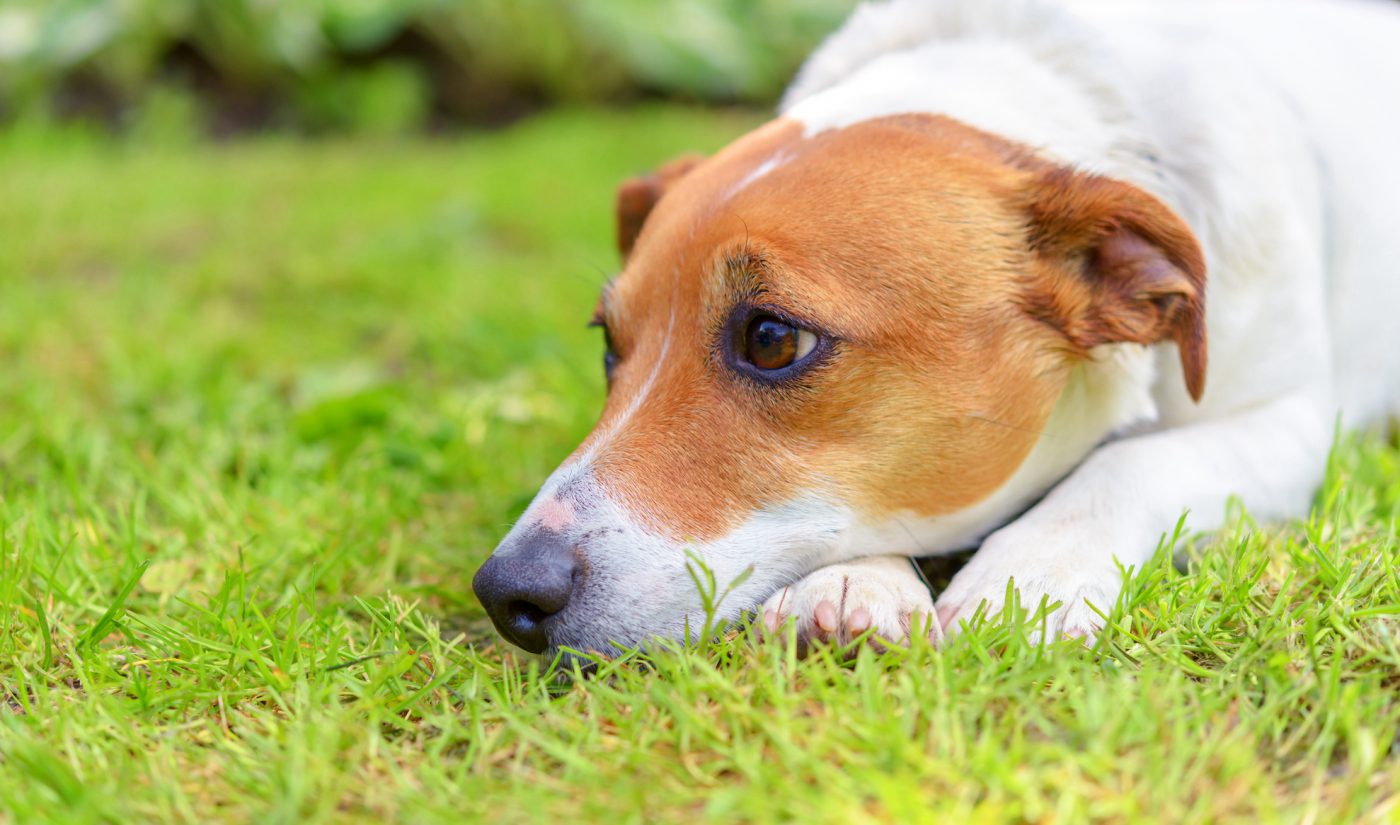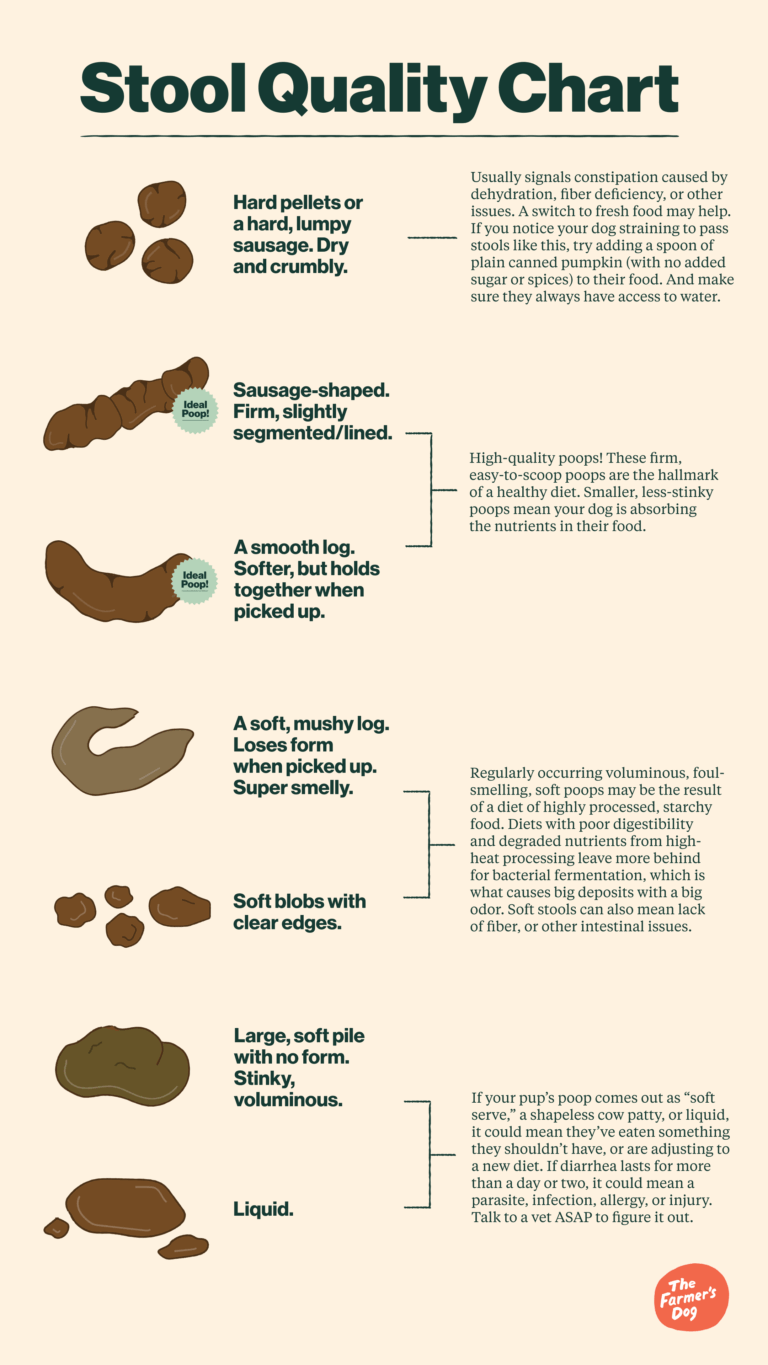When you’ve got a dog, doo-doo comes with the territory. Except that, sometimes, it doesn’t—and that can be cause for concern. Many things can cause constipation in dogs, but whatever the problem’s origin, one thing is certain: the longer you wait, the harder it’ll be to solve.
Here’s a guide to spotting trouble on the poop front, and how to help when your dog is constipated.
What is constipation?
Whether you walk on two legs or four, you can suffer from constipation.
Constipation refers to persistent difficult passage of stool, or the inability to pass stools on a regular basis. In the case of dogs, “regular” usually means pooping once or twice a day (though some dogs may go more). When your dog’s digestive system is working on schedule, waste passes through the colon easily helped along by a process called peristalsis. But if this process is somehow slowed or impaired, the fecal matter sits in the colon (in contrast, when waste passes too quickly through the colon, the result can be diarrhea).
The colon is tasked with the reabsorption of water, and it will continue to extract moisture from the fecal matter as long as it can. The longer the fecal matter stays in the colon, the harder it becomes and the less easily it moves. In cases of chronic constipation, hard, dry fecal matter can become compacted in your dog’s digestive tract. This is called obstipation, which makes defecation impossible.
Signs of constipation
A stoppage of stool or a reduction in feces frequency is the most obvious sign that your dog is constipated. If your dog has gone more than a day without pooping, it may not be a big deal, but it’s a sign to keep an eye on the situation. If they go for more than two days without pooping, it’s worth bringing up with your vet.
Here are some of the other signs your dog may be constipated:
- Hard, dry stools that feel like little pebbles
- A tense, hard abdomen or signs of discomfort
- Straining to defecate with little or no result
- Painful defecation / crying out
- Frequent squatting or circling with no resulting poop
- Small amounts of liquid fecal matter mixed with blood (this is known as overflow diarrhea and occurs when fecal fluid flows around a blockage in the colon)
- Decreased appetite
What causes constipation?
There are many, many potential causes of constipation. Diet is, as you may expect, a big factor in your dog’s digestive health and their regularity, and we’ll delve into that further below. Here are some of the other causes of constipation, some of which can be addressed at home, and some which require the intervention of your vet.
Dehydration: Think of your dog’s gut as a slippery slide—it works better with water. If your dog isn’t getting enough water, they’ll have hard stools that don’t move easily. Dehydration can cause other problems too, so it’s important to ensure your dog is getting sufficient water and moisture in their food.
Not enough exercise: A daily walk or game of catch doesn’t just keep you and your dog fit and happy, it also keeps the bowels moving. Exercise stimulates bowel movements and ensures that the fecal matter doesn’t rest too long in the colon. So remember, if your dog isn’t moving enough, their bowels might not be either.
Age: With age, things tend to slow down, and this includes your dog’s digestive system. Older dogs are more likely to suffer from constipation. This could be because their intestines have stretched over the years and increased storage capacity means that the fecal matter rests in the colon for longer. It could also be a result of reduced physical activity (due to fatigue or joint pain), reduced consumption of water, or medications for age-related maladies.
Stress: When your dog is in a state of stress, their body prepares for the threat: blood flow is directed to the heart, brain and muscles and away from the digestive system. Chronic stress means that over time, your dog’s digestive system may slow down. Like humans, dogs can find change stressful. The addition (or subtraction) of a family member or household pet, travel, boarding, or new schedules can all stress out your pet.
Arthritis /other orthopedic issues: If the act of squatting itself is painful or your dog has a hard time assuming an appropriate position, it can contribute to constipation.
Medications: Some medications, like pain relievers, may come with constipation as a side effect.
Tumors: A tumor anywhere in the digestive system can cause blockages that prevent fecal matter from passing smoothly through your dog’s gut. Some tumors also cause pain. If your dog has a tumor near their anus, they may try to hold its stool as long as possible to avoid the pain and, thus, cause constipation.
Anal gland issues: If your dog develops an abscess as a result of a blocked anal gland, they may experience pain when they try to defecate. As a result, your dog will try to avoid or delay defecation for as long as possible.
Enlarged prostate: If the prostate becomes large enough, it can press against the large intestine, causing flattened stools and constipation.
Thyroid problems: If your dog has an underactive thyroid, their metabolism will slow down. Along with a slowed metabolism, your dog will have a slowed digestive system. This means that the fecal matter will spend more time in the colon, increasing the risk of constipation.
Diet and constipation
As with humans, a healthy, balanced diet is the key to good digestive health, and fiber is a key ingredient in a healthy diet. Fiber is a carbohydrate that comes from an array of plant sources and that largely passes undigested through the small intestine. Getting enough high-quality fiber in the diet has all kinds of health benefits including feeding beneficial gut bacteria and contributing to immunity, helping regulate weight and the feeling of satiety, and, of course, aiding digestion and contributing to regularity. While some pet foods have a lot of carb content, they may not be providing the healthiest fiber source. Fresh vegetables like broccoli and leafy greens are a great source of fiber, and provide cancer-fighting nutrients to boot.
While a healthy diet should also include calcium in the right amount, too much calcium can be problematic. Bones, chicken cartilage, and pork shank contain a lot of calcium. Your dog’s body can only absorb a certain amount of it and the rest is discarded through the waste-disposal system—digestion. So, if your dog chews on too many calcium-rich snacks, they might end up with hard, white stools that block the intestines.
And. unlike humans (well, most of them anyway), dogs have a tendency to eat things that aren’t food—squeaky toys, pebbles, and fur, for example. These items might very well cause blockages.
How to help a dog with constipation
If you notice the constipation early enough, you might be able to get your pup happily pooping on schedule again with some simple steps. These steps also serve well as preventative measures.
Ensure your dog is well hydrated
First, make sure your dog has plenty of water to drink. How much water they need per day varies by weight, exercise, diet, and other factors, but a general rule is that they should get about one ounce of water per pound of body weight. Be sure they have access to clean, cool water. If your dog doesn’t seem inclined to drink enough water throughout the day, make sure you’re keeping their bowl clean, or even try changing the type of bowl you use. When you’re out and about, bring a collapsible bowl or other portable water source. You can also try giving your dog bone broth, which provides hydration and loads of health benefits. You can feed it “straight” or add it to their food (a good guideline to use is to serve one ounce of bone broth for every 10 pounds of your dog’s body weight).
If you usually feed your dog dry kibble, try fresh food. Since it’s lightly cooked instead of heavily processed and dried, it provides the natural moisture of the whole meat and vegetables in the recipes. Research has shown that fresh, human-grade food is more digestible than extruded kibble—that means your dog’s body can easily process the food, and absorb its nutrients. Whatever their daily diet, look for ways to give your dog water-packed, nutrient-rich treats and meal toppers, like blueberries, watermelon, celery, and leafy greens. These healthy food provide loads of water and fiber, which can help with digestion (make sure extras make up no more than 10% of your dog’s daily diet to prevent weight gain and nutritional imbalance).
Up their exercise
Make sure your dog is getting at least two to three walks a day, and for their digestive, and general health, try to work in vigorous play sessions as often as possible for healthy adult dogs (we’ve got more tips for upping their exercise here).
Make sure your dog’s diet contains enough fiber
As noted, above, fiber is an all-round health helper, and a key contributor to clockwork bowel movements. A diet of fresh food provides healthy, high-quality fiber in the form of fresh, whole vegetables like sweet potatoes, broccoli, green beans, and spinach.
Add some pumpkin
Giving your dog some plain canned or freshly cooked pumpkin is a good way to prevent constipation or to address some suspected, mild constipation (make sure there’s no added sugar or other ingredients). Pumpkin’s high fiber and moisture content make it a bit of a wonder food for digestion; it can help with both constipation and diarrhea. The high moisture content in particular can be hugely helpful for dogs eating a dry diet, as they get little to no water from their food.
Probiotics
Probiotics are living microorganisms that may help support your dog’s gut health and contribute to healthy poops. Since probiotics aren’t tightly regulated, products may have wildly varying quality levels—a 2011 study showed that many probiotic products were mislabeled or didn’t have enough viable microorganisms to have any effect. Consult your vet to see if and what kind of probiotics might be right for your pup.
Don’t attempt to give your dog an enema, a human laxative (or any laxative, unless prescribed by a vet) or milk (as some dogs are lactose intolerant).
When to seek treatment for constipation
Trust your gut. If your dog hasn’t pooped in more than 48 hours, shows any other signs of strange behavior or distress, has blood in their stool, is also vomiting or struggling to urinate, or if you suspect your dog might have eaten a nonfood item, call your vet.
Even if your dog seems okay, you should visit your vet if the constipation lasts more than two days as constipation can be a sign of a more serious disease. Chronic constipation can also lead to a condition known as megacolon, in which the blocked colon becomes distended and loses its ability to function normally.
Veterinary treatments for constipation
After ruling out any more serious causes of constipation, your vet might prescribe a laxative or enema. In more extreme cases, manual removal of the impacted feces may be necessary. And in very rare cases, surgery may be required to remove damaged sections of the colon.
The bottom line
You don’t need to panic about the occasional bout of constipation. But while it seems like an everyday, mild problem, if left untreated, it can cause serious health problems for your dog. As unglamorous as it is, keep an eye on your dog’s poops—both the quality and quantity. And remember that the things that promote good digestion and regular poops are the same things that help set your dog up for good overall health: lots of clean water, high-quality fiber in a healthy diet, and ample exercise.
This article was vetted by a vet.
Reviewed by Alex Schechter, DVM, founding veterinarian at Burrwood Veterinary.










